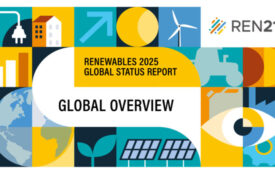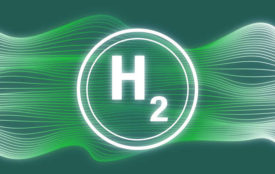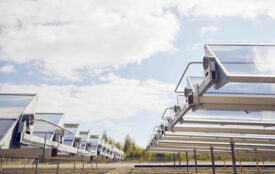100% Renewable Energy across Europe is More Cost Effective than the Current Energy System
New scientific study models full energy transition across power, heat, and transport sectors.
As climate discussions are underway among global leaders at COP24, the annual United Nations Framework Convention on Climate Change (UNFCCC) conference, a new report released Tuesday showcases the feasibility of a European energy transition to 100% renewable sources. The new scientific study shows that the transition to 100% renewable energy will be economically competitive with today’s conventional fossil fuel and nuclear energy system, and lead greenhouse gas emissions to zero before 2050. The study’s financial case for an energy transition becomes even stronger when taking into account significant projected job growth and the indirect economic benefits for health, security, and the environment, that were not factored into the study.
Undertaken by LUT University and Energy Watch Group, the first-of-its-kind scientific modeling study has simulated a full energy transition in Europe across the power, heat, transport, and desalination sectors by 2050. The study’s publication came after approximately four and a half years of data collection, and technical and financial modeling under the research and analysis of 14 scientists.
“This report confirms that a transition to 100% renewable energy across all sectors is possible and not more expensive than today’s energy system,” said Hans-Josef Fell, former German parliamentarian and president of Energy Watch Group, during its COP24 press conference, “It demonstrates that Europe can switch to a zero-emission energy system. Therefore, European leaders can and should do much more for climate protection than what is currently on the table.”
Some of the study’s key findings:
- The transition will require mass electrification across all energy sectors. Total power generation will exceed four to five times that of 2015, with electricity constituting for more than 85% of primary energy demand in 2050. Simultaneously, fossil fuels and nuclear are phased out completely across all sectors.
- Electricity generation in the 100% renewable energy system will consist of the following mix of power sources: solar PV (62%), wind (32%), hydropower (4%), bioenergy (2%) and geothermal energy (<1%).
- Wind and solar make up 94% of total electricity supply by 2050, and approximately 85% of the renewable energy supply will come from decentralized local and regional generation.
- 100% renewable energy is not more expensive: The levelised cost of energy for a fully sustainable energy system in Europe remains stable, ranging from 50-60 €/MWh through the transition.
- Europe’s annual greenhouse gas emissions decline steadily through the transition, from approximately 4200 MtCO2 in 2015 to zero by 2050 across all sectors.
- A 100% renewable power system will employ 3 to 3.5 million people. The approximate 800,000 jobs in the European coal industry of 2015 will be zeroed out by 2050, and will be overcompensated by more than 1.5-million new jobs in the renewable energy sector.
“The results of the study showcase that the current goals set forth under the Paris Agreement can and should be accelerated,” said Dr. Christian Breyer, professor for solar economy at Finland’s LUT University, “The transition to 100% clean, renewable energy is very realistic, right now, with the technology we have available today.”
The study concludes with policy recommendations to promote a swift uptake of renewable energy and zero-emission technology adoption. Primary measures promoted in the report include support of sector coupling, private investments, tax benefits, legal privileges, with a simultaneous phase out of coal and fossil fuel subsides. By implementing strong political frameworks, the report shows that a transition to 100% renewable energy can be realised even earlier than 2050.
- Click here for key findings
- The full study is available here.
- A presentation summarising the study results is available here.
About the Study
Simulation of the energy transition in Europe is part of the study “Global Energy System based on 100% Renewable Energy”, co-funded by the German Federal Environmental Foundation (DBU) and the Stiftung Mercator. State-of-the-art modeling, developed by LUT University, computes a cost-optimal mix of technologies based on locally available renewable energy sources for the world structured in 145 regions and determines a most cost-effective energy transition pathway for energy supply on an hourly resolution for an entire reference year. The global energy transition scenario is carried out in 5-year time periods from 2015 until 2050. The results are aggregated into nine major regions of the world: Europe, Eurasia, MENA, Sub-Saharan Africa, SAARC, Northeast Asia, Southeast Asia, North America and South America.








